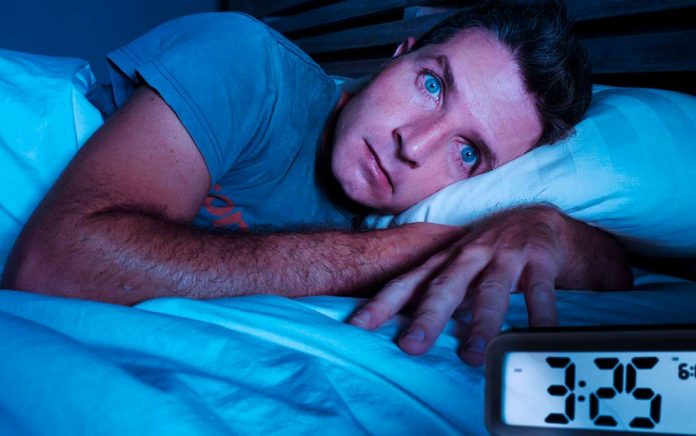
5 Newly Discovered – Little Known Reasons You Can’t Sleep
(WellnessPursuits.com) – We’re pretty sure we’re not the only ones who occasionally have a hard time falling asleep at night. Tossing and turning, only to realize you only have a couple of hours left before you need to get up is frustrating. Falling asleep is a natural process, but disruptions can really impact our well-being. We dug into some of the lesser known reasons you may find yourself struggling to get a good night’s sleep.
1. GABA Levels
GABA what? Low Gamma-Aminobutyric Acid, or GABA, levels can lead to insomnia. GABA is a neurotransmitter that helps your brain relax. Paying attention to this number is especially important if you have any type of seizure disorder, ADHD or depression, as you may naturally have lower levels of GABA in your blood.
To naturally boost GABA levels, you should:
- Include foods containing Vitamin B-6 in your diet, like spinach, bananas, Brussels sprouts, broccoli and garlic.
- Practice yoga and meditation.
- Eat fermented foods, including kefir, sauerkraut and pickles.
Get these levels checked and talk to your doctor about your results.
2. Your Food Choices
It’s no surprise that coffee and caffeinated tea just before bed is a no-no. But have you wondered why you’re still wide awake even though you’ve only been drinking water?
Foods that contain chocolate, citrus or lots of sugar can cause your glucose levels to fluctuate, making it harder to fall asleep. That pizza you had for dinner can also cause acid reflux as you lay down at night, making it difficult to relax enough to sleep.
3. Adrenal Problems
Your adrenal glands secrete the hormone cortisol around the time when you awake in the morning. From there, your cortisol levels diminish until melatonin spikes to aid in a restful night’s sleep.
Any type of adrenal dysfunction can cause you to get up in the middle of the night. One example is HPA axis dysregulation, a condition that occurs when the body is under constant stress. The result is varied cortisol and melatonin levels, making it harder to fall asleep.
4. Weight Gain
Has your weight been creeping up on you? Or maybe you’ve gained over 25 pounds? While weight gain carries its own set of health risks, it can be particularly unhelpful in getting a good night’s sleep, and is a huge risk factor when it comes to developing sleep apnea. This is a condition where you stop breathing periodically and wake up throughout the night.
This results in insomnia and daytime fatigue, and can have major long-term health consequences. You’ll definitely need to see your doctor for a sleep study and proper diagnosis.
5. Stress
Stress plays a major role when it comes to how well we sleep at night. You may feel you have your stress under control, but your subconscious has other ideas. Sometimes it feels like all of the little things we didn’t focus on throughout the day flood over us at night – the bills that need to be paid, upcoming appointments, disagreements with friends.
The trick to avoiding that constant replay at bedtime is to find a way to calm your mind. We’d tell you to simply “stop sweating the small stuff,” but we know that’s easier said than done. Instead, try listening to a guided meditation to calm your racing mind before you try to sleep.
We know how it feels to simply have a bad night. The question is whether or not you’re having more bad nights than good. If the answer is yes, it’s definitely time to take a closer look at your entire day to see if your routine needs to be adjusted. If not, we hope you’ll talk to your doctor. You deserve a good night’s sleep!
~Here’s to Your Healthy Pursuits!
Copyright 2025, WellnessPursuits.com
















